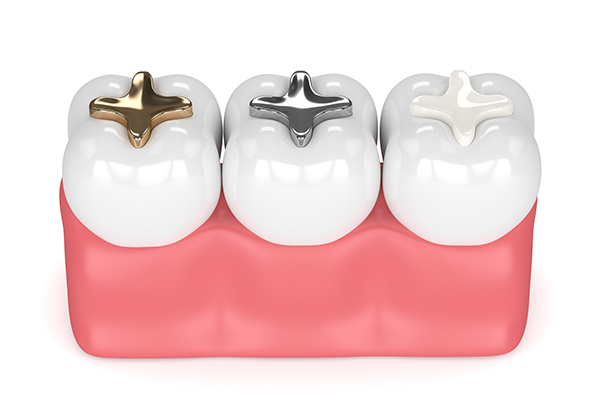 One of the most routine parts of general dentistry is placing dental fillings in patients. Your dentist may have told you that you need a filling. General dentistry can resolve several dental issues with fillings. You also have choices in the type of filling and the material making up your filling. Here are a few things you should know about general dentistry and what dentists use a dental filling for.
One of the most routine parts of general dentistry is placing dental fillings in patients. Your dentist may have told you that you need a filling. General dentistry can resolve several dental issues with fillings. You also have choices in the type of filling and the material making up your filling. Here are a few things you should know about general dentistry and what dentists use a dental filling for.
Cavities are the main culprit
Patients do not always realize there is a cavity until the dentist spots it. Patients and dentists should treat the cavity when the dentist spots it so that it does not become more serious. Over time, cavities can grow larger, leading to more tooth decay. If there is too much tooth decay for too long, the dentist may have to remove the tooth. It can also cause decay in nearby teeth, pain, and issues with the gum and jawbone. Placing a filling can prevent those issues.
Types of dental fillings
There are several types of fillings available. Many people are familiar with traditional amalgam fillings. These combine mercury, silver, zinc, tin, and copper. These fillings are long-lasting, but dentists often need to drill the area and make it larger than the original cavity hole to fit the fillings. Many dentists hesitate to drill the undamaged part of the teeth and suggest composite fillings. Composite fillings are resin and plastic and have a natural appearance.
General dentistry can also create fillings with ceramic, although ceramic fillings can be brittle and break easily. Children often get glass ionomer fillings because these fillings can release fluoride, which protects the tooth. But glass ionomer fillings are not ideal for adults because they do not last long. Gold fillings are the final option. Many dentists do not offer them due to the expense. However, gold fillings last the longest — often more than 20 years.
How the dentist places a filling
The dentist will clean the teeth and clear out any infection in the tooth that needs a filling. An anesthetic will ensure the patient does not feel any pain. The cavity can make the tooth nerve tender. The dentist will use a drill or other tool to remove the damaged part of the tooth and create the space for the cavity. When the tooth is ready, the dentist places the chosen filling type. After, the dentist polishes the filling and makes any final adjustments.
Other reasons for fillings
Some people need fillings for other dental issues. In general dentistry, patients can also need fillings for a cracked tooth or teeth damaged by excessive grinding. Even the habit of regular nail-biting can cause teeth to chip or crack. All this causes damage to the protective enamel. This exposes the interior of the tooth and the nerve as well.
General dentistry solves important problems
When you visit a dentist regularly, you can treat your cavities before they become more serious issues. Oral health is essential, and dental fillings keep your mouth healthier. General dentistry supports preserving your natural teeth. If you need a filling, talk to your dentist about how dentists use fillings and what your choices are.
Request an appointment or call Visalia Care Dental at 559-975-1213 for an appointment in our Visalia office.
Related Posts
Many people underestimate the importance of regular visits with a general dentist. They assume that daily brushing and flossing are enough. While at-home care is crucial, routine dental checkups ensure long-term dental health and prevent oral health complications.A general dentist functions much like a primary care provider for a person's mouth, serving as the first…
Oral appliances provided by a general dentist are an effective treatment option for sleep apnea. Sleep apnea is a severe disorder in which patients repeatedly stop breathing for a few seconds while sleeping. When the airways are clogged, airflow is momentarily limited, reducing the brain's oxygen level. The condition has physiological and emotional consequences for…
General dentists spend a significant portion of their time performing preventative dental treatments. These treatments reduce the odds of common dental issues, like tooth decay and gum disease, from developing in the future. Preventative care saves patients time and money by making it less likely that they will develop severe dental problems that call for…
